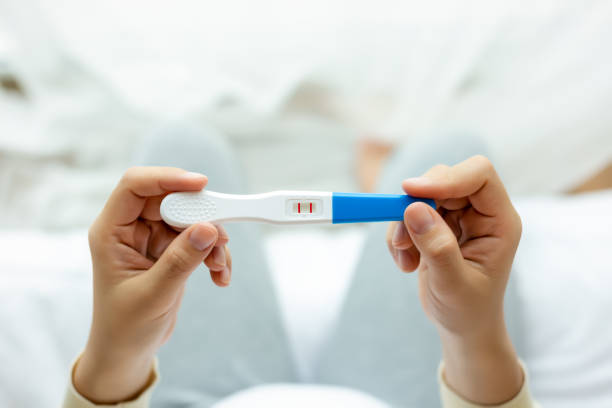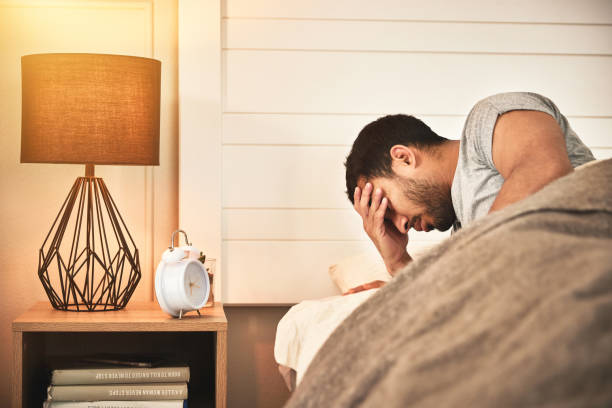Contemporary life often results in men suffering from low testosterone levels, leading to diminished libido. Although most common among obese men, its effects can have severe negative repercussions for the quality of life and further physical/emotional strain they already face. Recognizing obesity as the source of low testosterone in men is key to addressing its source and seeking suitable treatments effectively. By exploring potential solutions, men can work toward increasing hormone levels, regaining their libido, and improving their well-being.
The Link Between Obesity and Low Testosterone in Men
Obesity affects not just weight management but it also impacts all aspects of health, including hormone levels. One significant effect of obesity is reduced testosterone levels, which are essential male sex hormones responsible for increasing libido, energy, and vitality in men. As obese men gain weight, their bodies may convert testosterone to estrogen significantly reducing testosterone levels and decreasing sexual desire and drive. Men must recognize that obesity and low testosterone levels are inextricably linked. Addressing one issue often helps improve another; weight loss can naturally raise testosterone levels, leading to greater libido and overall health benefits.
What are the Causes of Low Testosterone?
Obesity may play an integral role in men experiencing low testosterone levels, with several potential reasons explaining how obesity could influence this decrease. Some of the key theories include:
1. Fat Cells and Hormones:
Abdominal fat cells (adipose tissue) secrete aromatase, an enzyme that converts testosterone to estrogen, lowering testosterone levels overall. As more abdominal fat; produces increased aromatase activity, overall testosterone levels decrease.
2. Chronic Inflammation:
Obesity has long been linked to a proinflammatory state, which disrupts hormone production and balance. This disruption often manifests in two brain regions responsible for managing testosterone production: the hypothalamus and the pituitary gland.
3. Insulin Resistance:
Obese individuals frequently exhibit insulin resistance, which adversely impacts testosterone levels. Insulin resistance hinders your body’s ability to manage blood sugar effectively and can further disrupt hormonal equilibrium.
4. Sleep Apnea:
Obesity is a significant risk factor for sleep apnea. Research has shown that sleep apnea is associated with lower testosterone levels.The interrupted sleep patterns and decreased oxygen levels can negatively impact the body’s hormone production, including testosterone, which can lead to reduced libido and sex drive and other health issues.
These theories are supported by scientific evidence, showing a strong connection between obesity and reduced testosterone levels in men. Addressing obesity can therefore play a critical role in improving testosterone levels and overall health.
How to Boost Testosterone and Libido?
Combating obesity and improving overall health are vital steps towards increasing testosterone levels and increasing libido. Here are some proven strategies:
- Adopt a Healthy Diet: Focusing on eating foods like lean proteins, healthy fats, vegetables and legumes that contain leucine can support testosterone production. By adopting such a diet you will successfully combat body fat while simultaneously stimulating hormone production.
- Engage in Physical Activity: studies have proven the power of physical exercise (particularly weightlifting and high intensity interval training, or HIIT), can raise testosterone levels. These exercises decrease body fat and build muscle, for maintaining hormonal balance. Ensure Quality Sleep: Adequate and quality rest are crucial for increasing and maintaining optimal testosterone levels.
- Manage Stress: Long-term exposure to stress increases cortisol while decreasing testosterone. Implementing effective stress management strategies such as yoga, meditation or deep breathing exercises can help restore hormonal equilibrium.
When to Seek Medical Help
Lifestyle changes such as improved diet, regular exercise and stress management can help combat obesity and low testosterone levels. Sometimes lifestyle measures alone might not be enough to achieve significant weight loss and normalise testosterone levels. When lifestyle adjustments do not yield significant improvements, seeking medical help becomes essential.
The Comprehensive Care at Modest Medix
At Modest Medix, we offer comprehensive and personalized treatments tailored specifically for men with low sex drive. Our programs are designed to help you achieve a weight loss of at least 5-10% of your body weight, which can provide maximum health and functional benefits.
Our experienced professionals recognize that every individual is unique in their healthcare needs. We provide personalized treatment plans that begin with an in-depth diagnostic process, including detailed medical histories and physical exams followed by blood tests to accurately measure testosterone levels and identify any underlying health conditions that could require hormone replacement therapy (HRT) treatment to restore them to a healthy range.
Modest Medix provides more than HRT; we customize interventions tailored to each patient’s unique needs, including medications to address symptoms, nutritional counselling to optimise diet and fitness programs to boost hormone balance while supporting all wellbeing. Our holistic approach ensures all aspects of a patient’s health are considered, providing comprehensive solutions for the causes of low testosterone and its symptoms.
We offer men the expertise and guidance of healthcare providers dedicated to improving their quality of life. Whether it involves medical treatments, lifestyle suggestions, or ongoing support – our goal is to help men achieve maximum health and well-being. Our dedication to patient education and support ensures that men can take control of their health for lasting success.
Success Stories and Testimonials
Modest Medix has assisted many men in successfully raising their testosterone levels and overall health with its customized treatment plans, such as one client who experienced an upsurge in energy, mood, and libido after taking advantage of such services. Modest Medix offered him a personalized plan that included diet changes, an exercise regime and targeted medical treatments tailored specifically to his needs. After receiving care from us, his sleep quality and sense of well-being both significantly increased. These testimonials showcase the positive outcomes of addressing low testosterone through professional care. Our success stories demonstrate how men can successfully overcome challenges associated with low testosterone and lead healthier and more satisfying lives when receiving professional support for treating their low T levels.
Conclusion
Obesity-associated testosterone deficiencies in men can lead to decreased libido and other health complications. Recognizing the link between obesity and low testosterone is the first step toward improving your health. Engaging in healthier living practices, managing stress effectively, and consulting professionals as necessary can help raise testosterone levels and enhance overall quality of life.
ModesT Medix is here to support you on this journey with expertise and personalized care to overcome low testosterone issues and restore vitality. Seek help from ModesT Medix to make your life healthier and happier.
By understanding the causes of low testosterone and taking proactive steps, you can combat its negative impact and enhance your overall health and well-being. From lifestyle adjustments to professional care at ModesT Medix, your journey toward better health begins today.
FAQ’S
What are the symptoms of low testosterone in men?
Decreased libido
Erectile dysfunction
Fatigue
Reduced muscle mass
Increased body fat
Mood disorders (depression or irritability)
Increased fracture risk
Difficulty concentrating
Memory issues
Decreased motivation
These symptoms can significantly impact the quality of life. It is important to consult healthcare providers for proper diagnosis and treatment if you experience these signs
How Does Obesity Contribute to Low Testosterone Levels?
Decreased libido, impotence, lethargy, decreased muscle mass, increased body fat, and mood disorders including melancholy and irritability are among symptoms that men may face when testosterone levels are low. Furthermore, obesity has been associated with chronic inflammation which disrupts hormone production and balance and Insulin resistance is common among obese individuals, which further impedes healthy regulation and decreases available testosterone production, thus leading to symptoms associated with lower T levels.
Can lifestyle changes alone increase testosterone levels?
While healthy eating, regular physical activity, and stress management can help raise testosterone levels, they may not suffice for severe deficiencies. These lifestyle changes improve weight loss, insulin sensitivity, and inflammation, positively impacting hormone levels. However, for some men, the decline may be too significant to address with lifestyle modifications alone. In such cases, seeking professional medical help from experts at Modest Medix is essential for effective treatment plans.
What sets Modest Medix apart in treating low testosterone in men?
Modest Medix stands out through its comprehensive and personalized care approach. From the very beginning, their team of highly qualified healthcare professionals conducts an in-depth diagnostic process, including a review of medical histories, physical exams, and specialized blood tests to precisely measure testosterone levels and identify underlying health concerns.
Based on these assessments, Modest Medix provides customized treatment plans, including hormone replacement therapy (HRT) to effectively restore testosterone levels. Their holistic approach considers all aspects of patient wellness, offering a comprehensive solution that improves vitality and quality of life.











